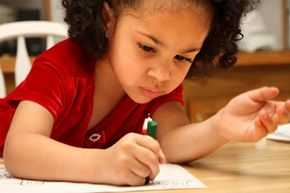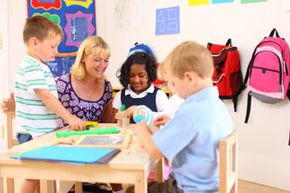Preschool -- a wonderful world filled with finger painting, sing-alongs and nap time! Perhaps you went to preschool but don't remember a whole lot more. Here's a rundown of what this type of schooling amounts to today.
As its prefix suggests, preschool happens before a child starts his or her formal education in kindergarten. It lays the foundation for a child's entire academic learning career. Also known as nursery school in the United States, preschool is -- or should be -- a place where a child interacts with others his or her age in a structured environment. It's not mandatory, nor is it a necessary prerequisite for kindergarten.
Advertisement
Kids typically begin preschool between three and five years old. However, when your toddler is actually ready to attend preschool has less to do with age and more to do with developmental maturity.
Patricia Henderson Shimm is Director of the Barnard College Center for Toddler Development in New York and co-author of "Parenting Your Toddler." She recommends asking yourself and people who know your child well -- such as your partner, nanny or pediatrician -- a series of questions to determine whether your child is socially, cognitively, emotionally and physically prepared for preschool:
- Is your child relatively independent?
- Has he or she spent time away from you?
- Can he or she work on projects independently?
- Is he or she ready to participate in group activities?
- Is your child accustomed to a regular schedule?
- Does he or she have the physical stamina for preschool?
If the collective answer to this set of questions is "yes," and you want to enroll your little one because he or she genuinely seems ready (not because you simply want time to yourself), it's probably a good time to begin preschool. And how much time he or she spends at school is largely up to you.
There are full-day programs that last up to six or more hours per day, as well as half-day programs that last approximately three hours per day in either the morning or afternoon. Some programs even let you choose how many days per week your little darling will attend. September through June is a fairly standard yearly schedule for preschool.
But not all preschools offer the same experience. Check out the next page for a rundown of the different kinds out there.
Advertisement



